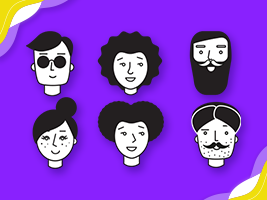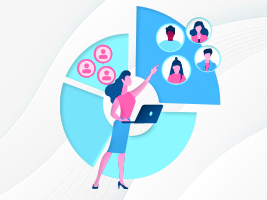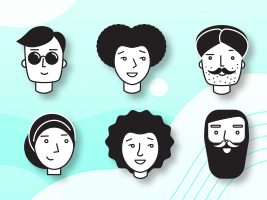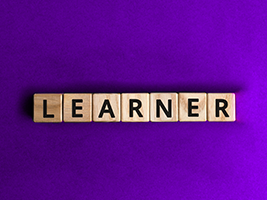
LEARNER PERSONA DEEP DIVE; THE WHAT, THE WHY AND THE HOW
This article takes you on a deep dive into the what and the why of learner personas. It also elaborates on how to obtain the information needed for creating those personas.

This article takes you on a deep dive into the what and the why of learner personas. It also elaborates on how to obtain the information needed for creating those personas.

We have seen L&D teams pour their hearts into the creation of personas, often involving lengthy discussions and debates, only to have them sitting on a shelf, gathering dust. Don’t let that be you. This article delves into what should happen (or can happen) once your personas are defined.

A good employee onboarding program does more than just introduce them to the company’s vision and values. It helps them settle down quickly in their new role, and feel capable and confident in their ability to contribute to the success of the organization. Let’s explore some ideas for making your next onboarding a great one.

Getting employees to align with organizational values is not easy. This article explores ways to take your values training beyond a mere checkbox activity.

In L&D, personas are fictional learners that reflect real ones. We create them so we can better understand the aspirations and challenges of learners, and work towards creating a solution that better aligns with their needs. The term is borrowed from the world of marketing, which uses buyer personas. However, we’d do well to consider the implications for L&D and tweak it to suit our purpose, instead of adapting it directly from there.

There are some biases that are harder to spot than others because they almost characterize the thinking of the field itself. Design is conceived in the real world; it is practiced by people living in the real world. These minds are also educated in design and conditioned daily by the real world.

The power of hegemony is that even something with very limited applicability can be packaged as ‘universal’. You want to explore decolonizing instructional design? Start here with how we define, analyze and characterize people. It is a necessary act of epistemic rebellion to stop using these generational categorizations to describe our learners, as if these have any kind of universal validity.

L&D has long had a history of coming up with solutions that fall woefully short of achieving our goals. But changing a word in order to make up for a shortcoming in the way we do our work is not the answer. Instead, I strongly suggest that we focus on improving our solutions by using thoughtful strategies and approaches. Here are some counter arguments for the proposal to stop using the word ‘learner’.

Struggling to prove the value of your L&D team to stakeholders? Here are some practical pointers to help you with that.

When SMEs aren’t omniscient superhumans, how can proper solutioning effort support and complement them in a project?

L&D teams seem to follow an all or nothing approach when it comes to learning impact measurement. If you’re measuring a lot of parameters, then good. But if you’re measuring nothing, here are some pointers to get started.

L&D is an integrative domain that draws on so many other subjects. Therefore, it’s essential that we educate ourselves on these subjects. This article covers a list of the disciplines that are of interest to those in our field, along with some book suggestions under each discipline.